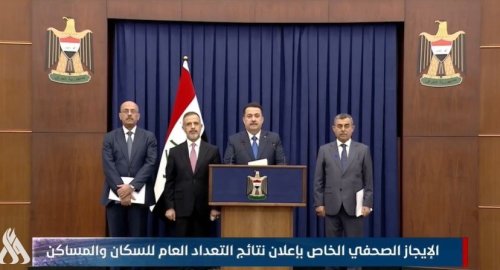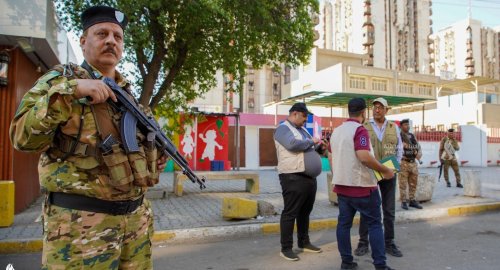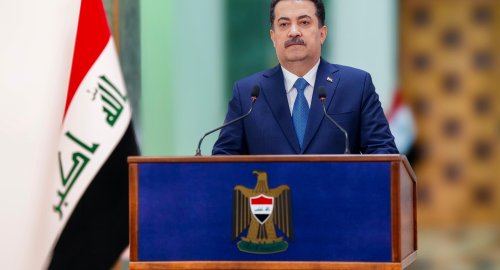
PM Al-Sudani Announces Preliminary Results of the 2024 Census of Population and Housing in Iraq

- 25-11-2024, 12:11
Baghdad-INA
Prime Minister Mohammed S. Al-Sudani announced on Sunday, the preliminary results of the 2024 Census of Population and Housing in Iraq, conducted earlier this month. This announcement was made during a joint press conference by the Prime Minister and the Minister of Planning, the Head of the Commission of Statistics and Geographic Information Systems, and the Senior Advisor of the United Nations Population Fund (UNFPA).
The Media Office Of The Prime Minister stated in a statement, received by The Iraqi News Agency-INA that “The Prime Minister revealed that, based on the completion of the census database across all governorates, Iraq’s population has reached 45,407,895, including foreigners and refugees”.
The statement added," The population distribution shows 70.3% residing in urban areas and 29.7% in rural areas".
Al-Sudani highlighted that the results indicate Iraq has entered the stage of “demographic dividend,” with the working-age population now constituting 60% of the total population.
The statement further stated “Prime Minister Al-Sudani expressed his gratitude to the tens of thousands of team members involved in the census, as well as the administrative, security, and technical teams that supported the effort, alongside ministries and governorates. Their contributions enabled the accomplishment of this significant step in planning for sustainable development, covering Iraq from north to south and east to west”.
The Prime Minister also thanked citizens for their cooperation, patience with the curfews, and for providing accurate information. His appreciation extended to the Commission of Statistics and Geographic Information Systems, the staff of the Ministry of Planning, the Statistics Authority in the Kurdistan Region of Iraq, and the UNFPA. Additionally, he acknowledged the significant role of religious leaders and figures who encouraged citizens to participate in the census.
The Prime Minister noted that the census had been long overdue, with the last comprehensive census conducted in 1987. The 1997 census excluded the Kurdistan Region of Iraq. He emphasized that carrying out this census is a government commitment included in its program, supported by all national political forces, constitutional authorities, and various sectors of the population. He reaffirmed the government’s determination to continue driving change for the current and future generations toward tangible sustainable development.
Below are the key preliminary results announced by His Excellency the Prime Minister as the census database was completed for the 2024 Census of Population and Housing:
• Total population of Iraq: 45,407,895, including foreigners and refugees.
• Urban population: 70.3%.
• Rural population: 29.7%.
• Number of households: 7,898,588.
• Average household size in Iraq: 5.3 persons.
• Male population: 22,784,062, representing 50.1%.
• Female population: 22,623,833, representing 49.8%.
• Households headed by women: 11.33%.
• Households headed by men: 88.67%.
Age group distribution of Iraq’s population:
• Population under working age (below 15 years): 36.1%.
• Population of working age (15–64 years): 60.2%.
• Population above working age (65 years and older): 3.7%.
Iraq has officially entered the demographic dividend phase, with the working-age population reaching 60%.
Comparing the 2024 census results with the 2009 enumeration, where Iraq’s population was 31.664 million, the annual population growth rate is 2.3%.
According to the 2024 census enumeration results, the number of housing units in Iraq is 8,037,221, distributed as follows:
• Houses: 92.1%.
• Apartments: 6.6%.
• Other types of housing: 1.3%.
The Commission of Statistics and Geographic Information Systems at the Ministry of Planning will continue collecting detailed data on the demographic, social, and health characteristics of the population to finalize comprehensive reports.
Oil prices inch up despite tariff concerns, slowdown fears
- Economy
- 25/03/11
Klopp Tops List of Candidates to Coach Juventus
- Sport
- 25/03/12












